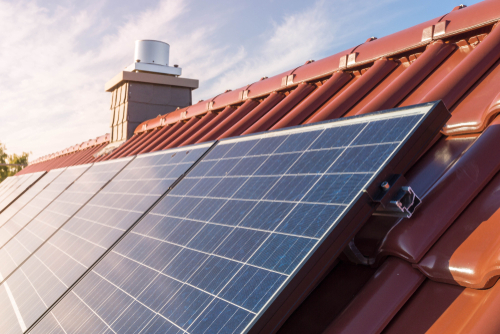
How To Manage The Efficiency Of Solar Panels
December 29, 2022
The Cost Of Maintaining A Solar Panel System
March 16, 2023Does Using Solar Energy At Home Affects Your Health?

Does Using Solar Energy At Home Affects Your Health? Global warming is a serious issue that needs a solution as soon as possible. Various countries, including Singapore, are open to technologies that can lessen carbon footprints. An emerging concept is the use of solar energy. It is a method of harvesting renewable power from the sun through solar panels.
It is a better alternative to fossil fuels that pollute the air. It has fewer health risks in comparison to nuclear energy. The impact on the environment is favorable. Solar energy is a healthy and cost-effective option.
But everything has two sides to consider. Renewable energy has its benefits but has some imperfections that need fine-tuning. The question is, does using solar energy at home affects your health? The article aims to answer this question.
Solar Power Benefits for Human Health

The main health benefits of solar panels are air quality improvement and greenhouse emissions reduction. It prevents respiratory diseases, skin conditions, and cardiovascular risks from triggering due to lesser exposure to pollutants. The benefits are essential for people to enjoy a healthier and longer life.
1. Lessen the risks of Respiratory Diseases
A huge benefit of using solar power is the reduction in greenhouse emissions. It results in lower pollutant accumulation in the air. There will be fewer risks of respiratory diseases like chronic bronchitis, emphysema, asthma, and chronic obstructive pulmonary disease.
The generation of solar power can regulate the overall environment temperature. It makes breathing and the weather conditions more comfortable. It allows opportunities for people to live an active lifestyle.
2. Reduce the possibility of Attacks related to Heart Problems

Air pollution from fossil fuels contains nitrous oxides and sulfur dioxide. These harmful emissions trigger existing cardiovascular problems. People prone to heart attacks, irregular heart rhythms, and stroke are at risk.
The pollutants hinder the heart from pumping enough blood. Utilizing solar panels does not contribute to air pollution and is an effective way to fight it. The heart does not encounter problems in accomplishing its job.
3. Prevents Wildfires that can cause Burns and Injury
As the earth’s temperature rise, the threat of wildfires becomes more severe every year. It is an unfortunate incident that is hard to control. It results in physical injury, loss of property, and even fatalities. Solar energy utilization slows down climate change. In a way, it prevents unwanted wildfires that save lives.
4. Promotes Healthier Skin and decreases Inflammation

Air pollution can cause the skin to get inflamed and irritated. Skin ailments, including psoriasis, acne, eczema, and atopic dermatitis, go from bad to worse if air quality is poor. Air pollutant reduction, specifically from fossil fuels, indirectly eases the symptoms of skin diseases. It is possible by simply generating solar energy at home.
Solar Power Health Concerns

Solar power generation technology is still under development. As the proceedings continue, there are a few minor concerns that arise. The listed harmful effects are minor and controllable.
1. Triggering of Electromagnetic Hypersensitivity
The solar panel utilizes electromagnetic radiation to generate power. It is a mechanism that can trigger a condition called electromagnetic hypersensitivity in some people.
Only a minority of people experience symptoms, which include nausea, dizziness, headaches, and a tingling sensation. It is not exclusive to solar energy generation only. Electronic gadgets like microwave ovens, cellular phones, television, and computers can aggravate this condition too.
2. Exposure to Silicon Dust is a high possibility
Solar panels feature pure silicon as their main component. Due to wear and tear, silicon dust will happen. A health risk arises when inhaling this substance. It leads to a lung disease called silicosis, the scarring on the lung tissue. The lung’s capacity to process oxygen is affected.
Does Using Solar Energy At Home Affects Your Health? – Conclusion

Technically speaking, solar energy has no side effects on the human body. It reduces carbon footprints and greenhouse emissions. Climate change also slows down due to this. Solar energy is economically beneficial since it is renewable energy and pollution free.
The method of harvesting can have some side effects. The technology for making solar panels could be better. But, compared to fossil fuels, the risks are minimal. The bigger picture shows that the benefits outweigh the bad. Harvesting solar power at home is acceptable and promising for present and future generations.




